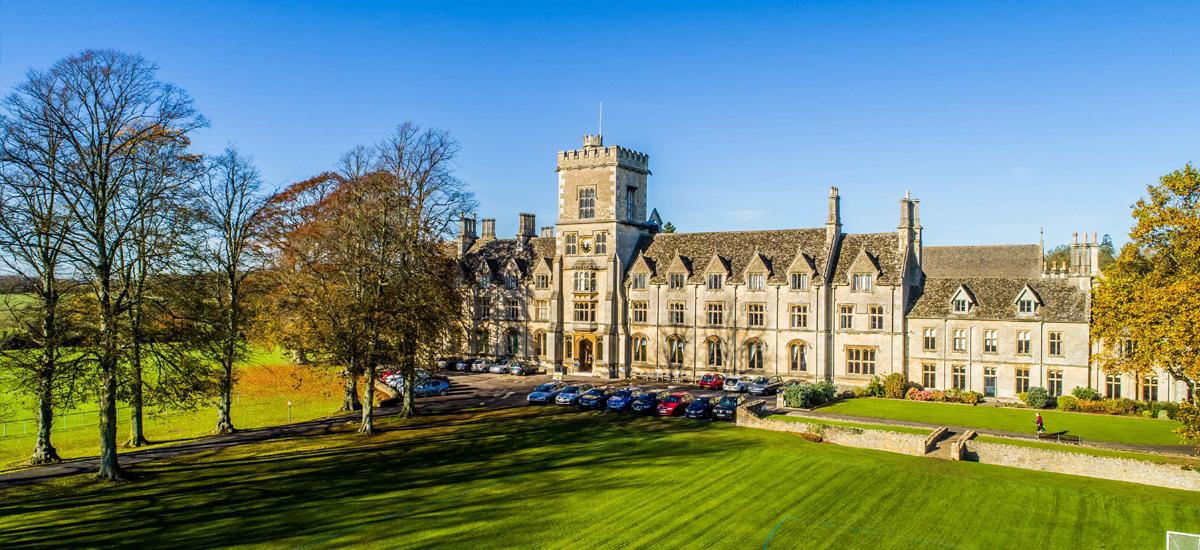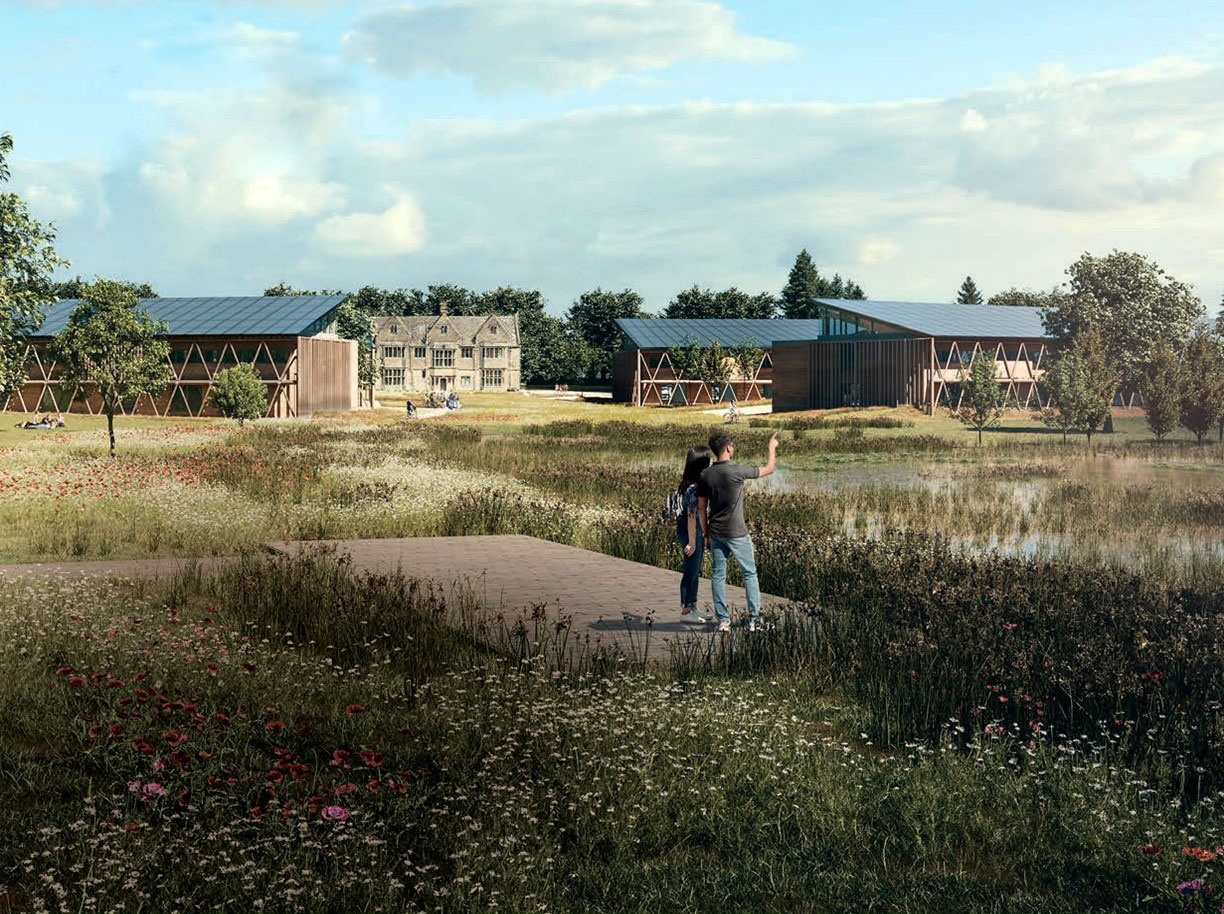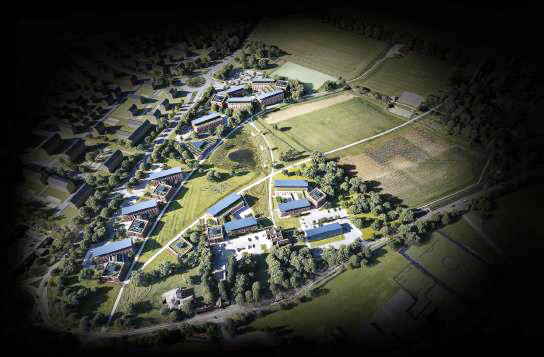The Innovation Village @ the RAU
 />
/>
Based on a 12 hectare site at the University’s Cirencester campus, the new Innovation Village will push the boundaries of sustainable design to ensure a development that is beautiful, carbon neutral, rich in nature, and inspires innovation through its environment.
Our Innovation Village will bring together industry, food producers, farmers and landowners to create a global innovation park to spark entrepreneurial solutions for sustainable land use and a net zero future.
With the support of local and central government the Innovation Village will develop new innovative practices that will restore biodiversity and increase agricultural productivity while maintaining land health and building resilience in rural communities.

A Globally Connected Net Zero Commercial Hub
Centred on agriculture, food and land management, our 12-hectare campus Innovation Village will be a first for the UK and provide a world-leading centre for sustainable agriculture, agri-tech, biodiversity recovery and land use innovation. It will attract international investment to drive solutions for the global challenges that face us such as climate change, food security, water management, decarbonisation and heritage management.
Driving Global Impact Through Innovation
Our Innovation Village will link cutting-edge research with industry needs to create scalable, practical solutions. With a strong focus on agricultural innovation, carbon sequestration, and sustainable land use and management, it will be a beacon for UK and international businesses committed to regenerative agriculture and net zero.
A Dynamic Business Environment
Designed to attract forward-thinking partners and companies, the Innovation Village will provide:
- State-of-the-art offices, workshops, and access to laboratory spaces – cost-effective, inspiring, and built to the highest ethical standards.
- A net zero business park and accelerator –supporting start-ups and established businesses with access to cutting-edge research and funding.
- High-quality commercial facilities – designed to foster collaboration, creativity, and impact.
At the Forefront of Sustainable Design
The Innovation Village will redefine modern development with bio-based architecture, stunning design, and the use of local materials characteristic of the region. Its pioneering design will achieve a BREEAM ‘Outstanding’ rating for Sustainability and be of Passivhaus ‘Premium’ standard for energy efficiency, comfort and affordability. It will set new standards in environmental responsibility and sustainable design for future developments of this nature. It will inspire innovation through its environment.
A Global Hub for Entrepreneurship & Partnerships
The RAU historic mission as the very first agricultural college in the English-speaking world, combined with our reputation as a solution provider, makes us the perfect home for this initiative. By fostering international collaborations, and providing space for a thriving cluster of businesses, researchers and changemakers dedicated to strategic innovation, our Innovation Village will deliver long-term impact and sustainability.
Phase One – Research & Innovation Centre
A 3,400sq metre iconic building will form the central hub of the Innovation Village and will be completed as the first phase of this exciting development. It will provide a stunning location for a nexus of like-minded businesses and policymakers.

To find out more and start a conversation, please contact Innovation.Village@rau.ac.uk.
Next steps
Sustainable design is a fundamental success factor for the University and we have employed Architype, the leading Passivhaus Architect with more than 30 years’ experience, to lead the design process.
The Hereford-based architect has been joined by Cirencester’s OPS Structures and QODA MEP Consultants of Faringdon, meaning that the core design team is based within 60 miles of the site. The landscape-led design befitting such a project is the responsibility of BD Landscape Architects of Tewkesbury whose job it has been to develop a scheme that embodies the values of the University and supports the ‘village’.
Following extensive consultation with stakeholders and industry, the project passed the RIBA stage 2 concept design phase, enabling submission of an outline planning application, in Spring 2024.
A submission for outline planning permission was submitted to Cotswold District Council in April 2024 and this was validated in June 2024. The application can be viewed here.
We hope to hear the outcome of this application in the Summer of 2025.